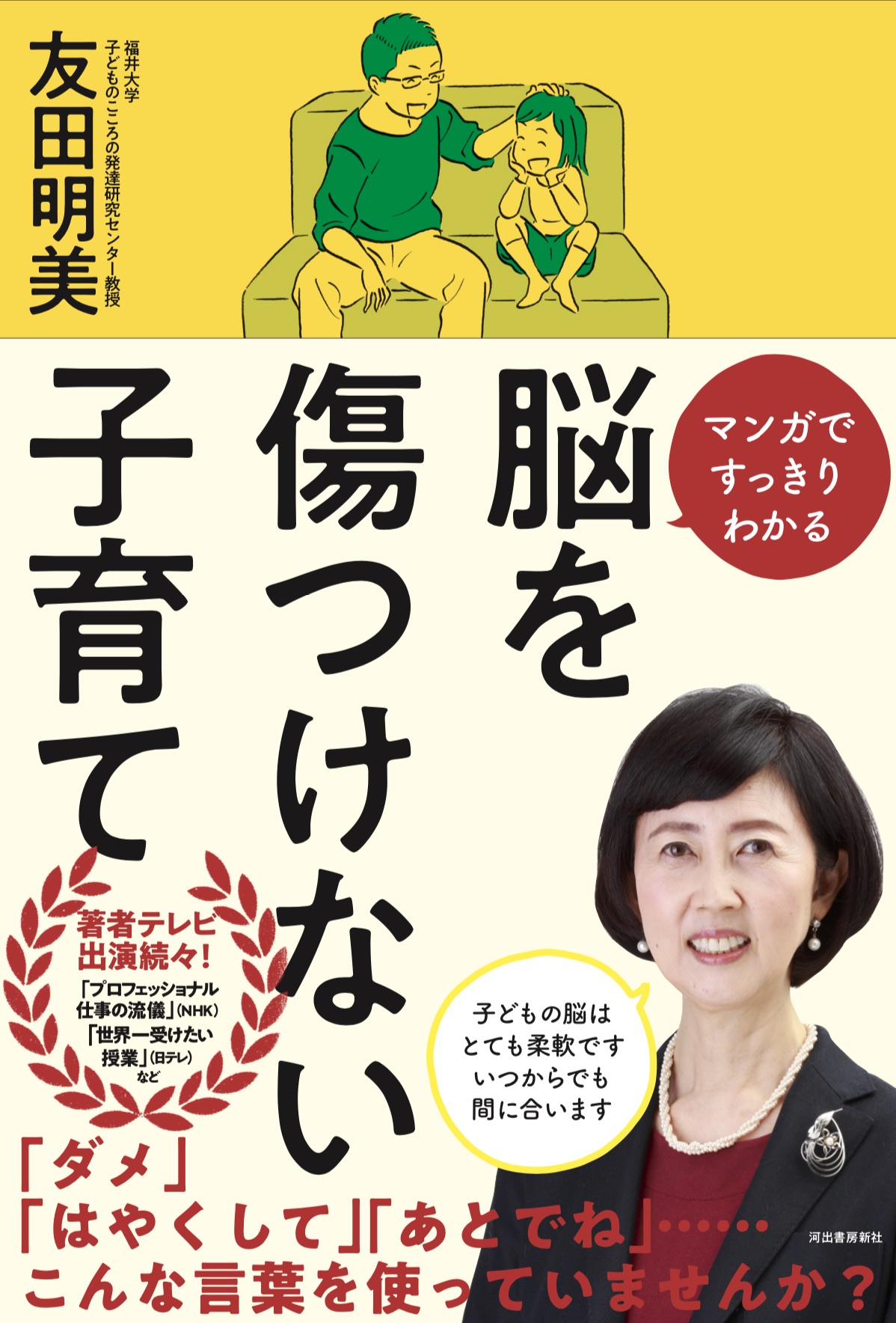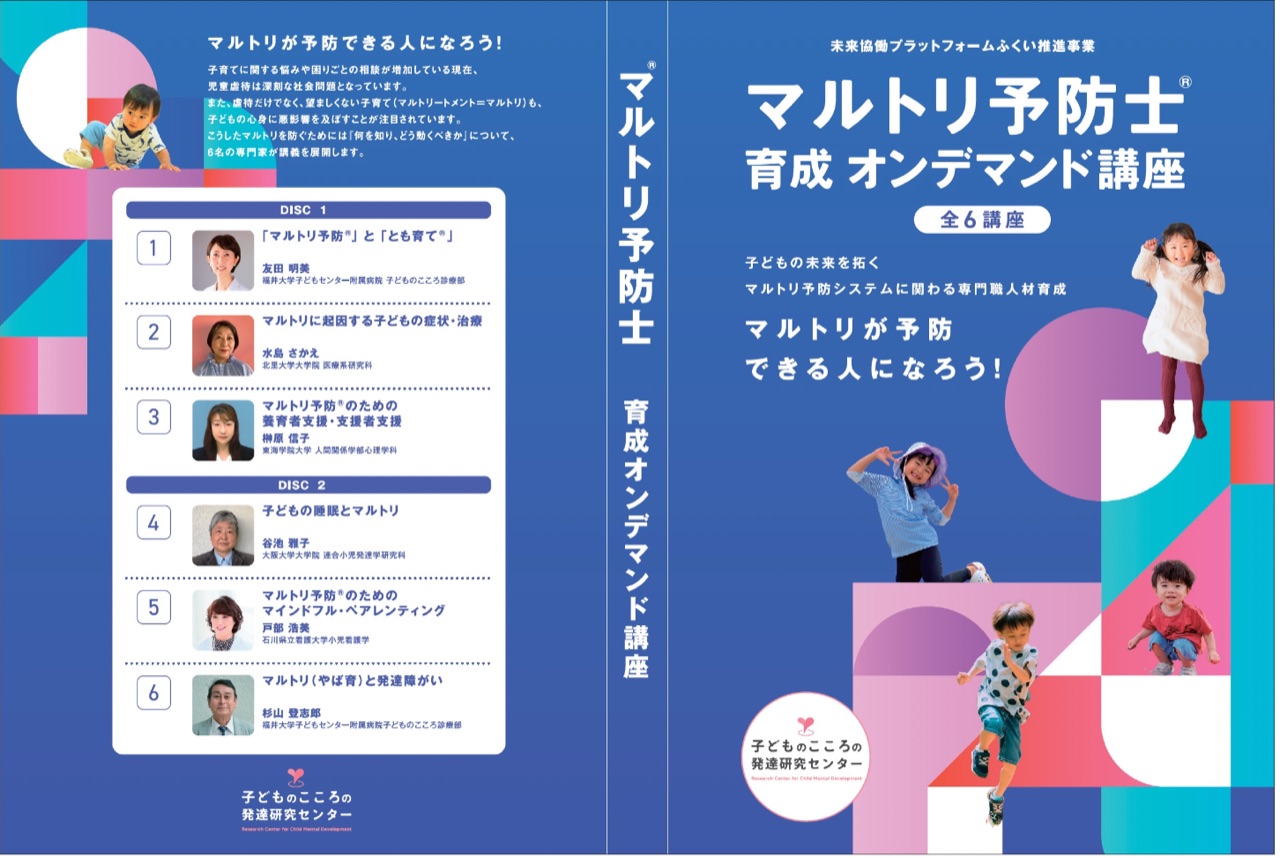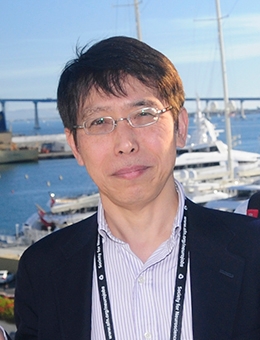

Falsified Peer Review Case by Akemi Tomoda and Kenji Hashimoto
友田明美と橋本賢二による査読偽装事件


Akemi TOMODA's book entitled as "Book on child-rearing for not being injured your kids' brains"; Brochure of the Private license course on the Prevention Promoter Maltreatment of Children, MARUTORI-YOBOSHI.
Mitzub'ixi Qu'q Ch'ij
☆ Fake reviewing, or self-reviewing, involves recommending a fake reviewer during the peer-review process. Fake or self-review manipulates the review process and guarantees a paper receives a positive review. This is considered a questionable research practice.If Journal editors are unable to detect the fake reviewers, articles might be published without the quality control of sufficient genuine peer review. All major publishers, including Elsevier, Springer, Taylor & Francis, SAGE, Wiley, and Informa have retracted papers because of fake reviews. As of 2020 over 600 articles have been retracted because of fake reviewing according to the Retraction Watch Database. COPE, Committee on Publication Ethics, estimates that 10% of retractions are due to fake reviewing.
| Fake peer-reviewing What is this about? Fake reviewing, or self-reviewing, involves recommending a fake reviewer during the peer-review process.[1] Fake or self-review manipulates the review process and guarantees a paper receives a positive review. This is considered a questionable research practice.[2] Why is this important? Peer reviewing is a pillar of the scientific process, improving the quality of published research. Within the article submission process, many journals allow authors to suggest peer reviewers. By providing fake email addresses generated by the author themselves, authors can manipulate the peer-review process. Several forms of ‘fake reviewing’ can be distinguished: Authors can refer to existing scientists, but provide fake email addresses; Authors can refer to ficticious reviewers, supplemented with an email address; Third parties offering services can also provide fake reviews. [3] The dangers of neglect If Journal editors are unable to detect the fake reviewers, articles might be published without the quality control of sufficient genuine peer review. All major publishers, including Elsevier, Springer, Taylor & Francis, SAGE, Wiley, and Informa have retracted papers because of fake reviews. [4][5][3] As of 2020 over 600 articles have been retracted because of fake reviewing according to the Retraction Watch Database.[6] COPE estimates that 10% of retractions are due to fake reviewing. [3] Below a list of ‘red flags’ in peer review can be found, which should raise suspicions about authors aiming to fake the review process. Red flags in peer-review[7]: “The author asks to exclude some reviewers, then provides a list of almost every scientist in the field. The author recommends reviewers who are strangely difficult to find online. The author provides Gmail, Yahoo or other free e-mail addresses to contact suggested reviewers, rather than e-mail addresses from an academic institution. Within hours of being requested, the reviews come back. They are glowing. Even reviewer number three likes the paper.” https://embassy.science/wiki/Theme:Fb1a2e2a-aa2a-4eb4-ac9c-c9567c2b401b |
偽装査読/査読偽装 それはどのようなものですか? 偽査読、または自己査読とは、査読プロセス中に偽の査読者を推薦することです[1]。偽査読または自己査読は査読プロセスを操作し、論文が肯定的な査読を受けることを保証します。これは疑わしい研究慣行と考えられています[2]。 なぜこれが重要なのでしょうか? 査読は科学的プロセスの柱であり、出版される研究の質を向上させます。論文投稿プロセスの中で、多くのジャーナルは著者が査読者を推薦できるようにしてい ます。著者自身が作成した偽のメールアドレスを提供することで、著者は査読プロセスを操作することができます。偽の査読」にはいくつかの形態がある: 著者は、既存の科学者を紹介するが、偽のメールアドレスを提供することができる; 著者は、Eメールアドレスで補足した架空の査読者に言及することができる; サービスを提供する第三者も偽の査読を提供することがある。[3] 【放置した時の危険性について】 ジャーナル編集者が偽査読者を発見できなければ、十分な真正査読による品質 管理がなされないまま論文が出版される可能性がある。エルゼビア、シュプリンガー、テイラー&フランシス、SAGE、ワイリー、インフォーマなど、すべて の大手出版社は、偽査読を理由に論文を撤回している。 撤回ウォッチ・データベースによれば、2020年現在、600以上の論文が偽査読を理由に撤回されている。COPE,は、撤回論文の10%が偽査読によるものだと推定している。 以下に査読における「レッドフラッグ」のリストを示しますので、査読プロセスの偽装を目的とする著者に疑念を抱いてください。 査読におけるレッドフラッグ[7]: 「何人かの査読者を除外するよう依頼し、その分野のほとんどすべての科学者のリストを提供する。 著者が推薦する査読者は、ネット上で見つけるのが妙に難しい。 著者は、学術機関のメールアドレスではなく、GmailやYahooなどのフリーメールアドレスを、推薦された査読者に連絡するために提供する。 依頼を受けてから数時間以内にレビューが戻ってくる。彼らは熱狂的だ。 番目の査読者でさえ論文を気に入っている」。 |
| For whom is this important? Journal editors Journal publishers Authors PhD students Postdocs |
これは誰にとって重要なのか? ジャーナル編集者 ジャーナル出版社 著者 博士課程の学生 ポスドク |
| What are the best practices? Considering fake review, there are several strategies journals can implement to overcome the challenges. A first strategy is not accepting the requests of peer reviewers from the authors. The reviewers are chosen by the journal editors, and ensure there are no ‘fake reviewers’. However, many journals cannot find (enough) peer reviewers, and granting the request can be time saving for journals.[8] At times, journals need to rely on the requests of authors to find peer reviewers at all. A second strategy is implementing an easy system that verifies reviewers. One online platform created to facilitate verification is Publons.[8][9] Here, journal editors can do background checks on the reviewers, and easily check their contributions in the field. In addition, reviewers get recognition for their reviews, even if these are anonymous. [1] https://embassy.science/wiki/Theme:Fb1a2e2a-aa2a-4eb4-ac9c-c9567c2b401b |
ベストプラクティスとは? 偽装査読を考慮すると、課題を克服するためにジャーナルが実施できる戦略はいくつかあります。第一の戦略は、著者からの査読者の依頼を受け入れないことで す。査読者はジャーナル編集者が選び、「偽の査読者」が存在しないようにします。しかし、多くのジャーナルは(十分な)査読者を見つけることができず、依 頼を許可することはジャーナルにとって時間の節約になります。 第2の戦略は、査読者を検証する簡単なシステムを導入することです。検証を容易にするために作られたオンラインプラットフォームの1つがPublonsで す[8][9]。ここでは、ジャーナル編集者は査読者のバックグラウンドチェックを行い、その分野での貢献を簡単に確認することができます。さらに、査読 者は、たとえ匿名であっても、自分の査読を評価される。[1] |
 Prof. Akemi TOMODA, https://researchmap.jp/read0172993 Prof. Akemi TOMODA, https://researchmap.jp/read0172993
|
 Kenji
Hashimoto, professor with the Division of Clinical Neuroscience, Chiba
University Center for Forensic Mental Health, Chiba, Japan. (image source) Kenji
Hashimoto, professor with the Division of Clinical Neuroscience, Chiba
University Center for Forensic Mental Health, Chiba, Japan. (image source) |
| On April 17, the University of Fukui issued a disciplinary action
against a professor of the University of Fukui for "faking peer review"
by collaborating with several researchers at other universities and
personally participating in the peer review of an academic paper he
submitted. The university has not disclosed the professor's name or
affiliation. According to the source, the professor who was disciplined
was Akemi Tomoda. According to the University of Fukui, the pay cut is the fourth most serious of the five levels of disciplinary action. The university's disciplinary regulations for employees stipulate that the amount of salary reduction per month should not exceed one-tenth of the total amount of salary for the month. The university did not disclose the amount or duration of the pay reduction, explaining that it is the most serious of the pay reduction provisions. Peer review is a review method in which an article submitted to an academic journal is read by another expert in the field to check its validity and determine whether or not it can be published. According to the university's investigation report and other documents, Professor Tomoda "staged" and sent to the reviewers review comments that should have been prepared by a third party for six academic papers for which he was the lead author, and had the papers published. Three of the reviewers, including Professor Kenji Hashimoto, Deputy Director of the Center for Social and Mental Health Education and Research at Chiba University, cooperated in the fraud. Mainichi Newspaper 2023/2/17 |
福井大教授が、他大学の複数の研究者と協力し、投稿した学術論文の査読
に自ら関与する「査読偽装」をした問題で、福井大は17日、教授を減給の懲戒処分にした。大学は教授の氏名や所属を公表していない。関係者によると、処分
されたのは友田明美教授。 福井大によると、減給は5段階ある懲戒処分の中で4番目の重さ。大学の職員懲戒規定では、1カ月あたりの減給額は、その月の給与総額の10分の1を超え ない範囲と定められている。大学は減給の額や期間を明らかにせず、「減給規定の中で最も重い内容としている」と説明した。 査読は、学術誌に投稿された論文をその分野の別の専門家が読んで妥当性をチェックし、掲載の可否を判断する審査方法。大学の調査報告書などによると、友 田教授は責任著者を務めた学術論文6本について、本来は第三者が作成すべき査読コメントを「自作自演」して査読者に送付し、論文を掲載させた。査読者だっ た千葉大社会精神保健教育研究センター副センター長の橋本謙二教授ら3人も、この不正に協力した。 毎日新聞 2023/2/17 |
| The
University of Fukui's Investigative Committee released a report on
January 20, finding "inappropriate conduct" in a total of six papers by
Professor Akemi Tomoda and three others in connection with the issue of
Professor Tomoda's alleged involvement in the "peer review" of her own
papers at the University of Fukui's Research Center for Child Mental
Development. The University of Fukui will consider disciplinary action
against the professors. According to the report, Professor Tomoda received e-mail requests from three reviewers of a paper submitted to an academic journal and instructed two faculty members to prepare draft review comments. The reviewers submitted their draft comments to the journal publisher, and the article was published in the journal. Professor Tomoda explained that he provided the draft comments because "the reviewers were prominent researchers with more experience than myself, and I decided that I should reduce the amount of effort involved in the peer review process. The Investigation Committee stated that "there was no falsification of research data, and the research results were not distorted in any way. The three reviewers were a professor at Chiba University, a former professor at Kanazawa University, and a former professor at Hamamatsu University School of Medicine.All were recommended to the publisher by Professor Tomoda, and Sen-Chiba University was responsible for the largest number of five papers. With regard to the issue of Professor Akemi Tomoda of Fukui University allegedly being involved in the "peer review" of her own paper, Hamamatsu University of Medical Science announced the results of an investigation by the 21st that a former professor of the university's medical school had requested draft peer review comments from Professor Tomoda and sent the comments she provided to the publisher. After receiving a request from the University of Fukui in August, Hamamatsu University School of Medicine established a preliminary investigation committee, including outside members, to look into the matter. While the facts of the former professor's conduct were confirmed, the former professor was not aware of any ethical problems in asking the author of the paper to comment on the peer review. He was not involved in any peer review other than that of the paper in question by Professor Tomoda, and no conflict of interest between the two was confirmed. Hamamatsu University School of Medicine stated that it was "extremely regrettable that inappropriate actions were taken," but concluded that "in light of the code of conduct for scientists and socially accepted ideas, there were deviations from the ethics of researchers, but the degree of deviation was not so great as to be considered extreme. |
福井大学「子どものこころの発達研究センター」の友田明美教授が自らの論
文の「査読」に関わったとされる問題で、福井大学の調査委員会は20日、友田教授ら3
人の論文計6本で「不適切な行為」があったと認定する調査結果報告書を発表した。これまでに撤回された論文2本を除く4本について友田教授に取り下げを勧
告、福井大学は教授らへの処分を検討する。 報告書によると、友田教授は、学術誌に投稿した論文の査読者3人からメールで依頼を受け、教員ら2人に指示して査読コメント案を作成させた。査読者は返 信されたコメント案を利用して学術誌出版社に提出、論文が学術誌に掲載された。友田教授はコメント案の提供について「(査読者が)自分より経験がある著名 な研究者で、査読に関わる労力を減らすべきと判断した」という趣旨の説明をしている。調査委は「研究データの改ざんなどが行われたわけではなく、研究成果 をゆがめるものではなかった」とした。 査読を担当した3人は千葉大学の教授と金沢大学の元教授、浜松医科大学の元教授。いずれも友田教授が出版社に推薦し、千葉大学は最も多い論文5本を担当した。 福井大学の友田明美教授が自らの論文の「査読」に関わったとされる問題で、浜松医科大は21日までに、同大学医学部の元教授が友田教授に査読コメント案を依頼 し、提供を受けたコメントを出版社に送っていたとする調査結果を発表した。 福井大学から8月に要請があり、浜松医科大学は外部委員を含む予備調査委員会を設けて調べた。元教授の行為の事実関係を確認した一方、元教授は論文著者に査読コ メントを求めることに倫理上問題があるとの認識はなかったという。友田教授の当該論文以外の査読には携わっていないほか、2人の間の利害関係も確認されな かった。 浜松医科大学は調査結果について「不適切な行為が行われたことは大変遺憾」とした上で、「科学者の行動規範および社会通念に照らし、研究者倫理からの逸脱は存 在するが、逸脱の程度が甚だしいとまでは言い切れない」との判断を示した。 静岡新聞(大学名はフルネームに変えた) |
| In this "falsified peer review" case, which originated from a breach of
trust committed by a reviewer, the author believes that Professor
Hashimoto is extremely responsible compared to Professor Tomoda.From
the standpoint of the editorial staff, who have no choice but to
believe the self-reports of the reviewers, it must be said that it was
inevitable that the editorial staff failed to detect the breach of
trust committed by Professor Hashimoto this time. For misconduct by authors, many journals have adopted sanctions such as banning the same author from submitting papers, in addition to withdrawing or deleting the corresponding paper.On the other hand, for violations of ethical codes by reviewers, the peer review system relies heavily on the goodwill of reviewers, and there is currently no clear sanction in the academic publishing system other than not requesting peer review. However, in response to the recent "falsified peer review" report, the following comment was made in response: "I imagine that this kind of misconduct is a daily occurrence. I felt a sense of crisis when I saw comments and opinions on SNS saying, "Science cannot be trusted because of this." I felt that if the scientific community allows this kind of violation of ethical rules by reviewers to continue, it will directly lead to a loss of trust in scientific research in general. However, if Professor Hashimoto did not understand the "ethics required of reviewers," it is necessary to clarify whether this is a personal problem for Professor Hashimoto or a problem in the research education surrounding him. Chiba University, to which Professor Hashimoto belongs, and the academic associations need to work earnestly to prevent a recurrence. |
今回の「査読偽装」事件において、査読者の犯した背任行為を発端として
発生したものであり、橋本教授の責任は、友田教授に比べて極めて大きいと筆者は考
える。なお、査読者の自己申告を信じるしかない編集担当者に立てば、今回、編集担当者が橋本教授の背信行為を見抜けなかったのは、仕方がなかったと言わざ
るを得ない。 著者の不正行為に対しては、該当論文の取下げ・削除に加えて、同一著者の投稿禁止などの制裁措置が多くの学術誌で採用されている。他方、査読者の倫理規定 違反については、査読システムが査読者の善意に大きく依存しているため、査読を依頼しないという対応以外に、学術出版システムの中で明確な制裁措置を施す ことは出来ないのが現状である。しかし、今回の「査読偽装」報道に対し、「このような不正は日常茶飯事に行われていると想像される。だから、科学は信頼で きない」という感想・意見がSNSで述べられているの見て、科学界が今回のような査読者の倫理規定違反を放置することは、社会の科学研究全般への信頼を失 うことに直結しているとの危機感を筆者は抱いた。 橋本教授が「査読者に求められる倫理」に反する行為をおこなった理由は、現時点では不明であるが、「査読者に求められる倫理」を理解していなかったとすれ ば、それは橋本教授個人の問題なのか、あるいは彼をとりまく研究教育の問題なのかを明らかにし、橋本教授が所属する千葉大学および学協会は、真摯に再発防 止に取り組む必要がある。 海洋学 研究者の日常, 2022年08月02日より(文章の主語を一部変えたり追加している) |
| COPE (Committee on Publication
Ethics) is committed to educating and supporting editors, publishers,
universities, research institutes, and all those involved in
publication ethics. COPE aims to move the culture of publishing towards
one where ethical practices become a normal part of the culture itself.
Our approach is firmly in the direction of influencing through
education, resources and support of our members, alongside the
fostering of professional debate in the wider community. Over 25 years, COPE has grown to support members worldwide, from all academic fields. Our members are primarily editors, but also publishers, universities and research institutes, and related organisations and individuals involved in publication ethics. After a period of consultation with the Trustees and Council, and feedback from our members, the COPE strategic plan was developed to guide the organisation and its activities. https://publicationethics.org/about/our-organisation |
COPE(Committee on Publication
Ethics:出版倫理委員会)は、編集者、出版社、大学、研究機関、そして出版倫理に関わるすべての人々を教育し、支援することを目的としています。
COPEは、倫理的実践が文化そのものとして当たり前のものとなるよう、出版文化を動かしていくことを目指しています。私たちのアプローチは、より広いコ
ミュニティにおける専門的な議論の育成と並行して、教育、リソース、メンバーへの支援を通じて影響力を与えるという方向性を堅持しています。 25年以上にわたり、COPEは世界中のあらゆる学術分野のメンバーをサポートするまでに成長しました。会員は主に編集者ですが、出版社、大学、研究機 関、出版倫理に関わる関連組織や個人も含まれます。評議員会と協議し、メンバーからのフィードバックを経て、COPE戦略計画が策定され、組織とその活動 の指針となっています。 |
Links
リ ンク
文 献
そ の他の情報
Copyleft, CC, Mitzub'ixi Quq Chi'j, 1996-2099
☆ ☆
☆